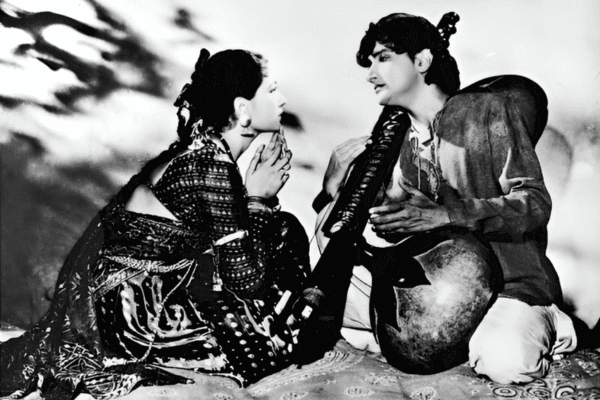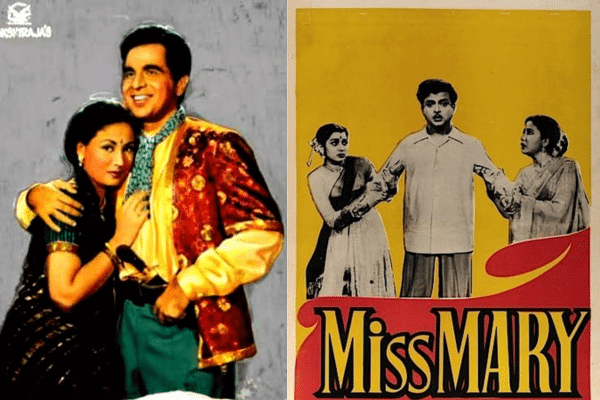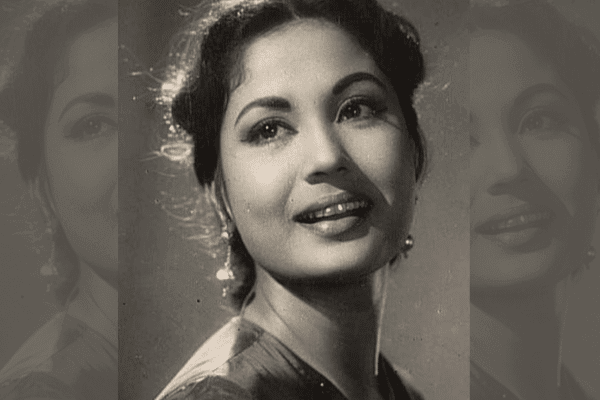The 10th Filmfare Awards in 1963 had the first ever – and only – instance of one actor scooping up all the nominations in a category. Hindi films’ ‘tragedy queen’ Meena Kumari, known for portraying a wide gamut of wronged and long-suffering yet stoic Indian women, was the only contender for Best Actress – for Aarti, Main Chup Rahungi and Saheb Bibi Aur Ghulam.
She won for the period tearjerker Saheb Bibi Aur Ghulam, in which she portrays a lonely and melancholic woman who engages in self-destructive behaviour to keep up with her dissolute husband. Meena Kumari played the role with such a deep level of insight into her character’s psyche that it is hard to believe that she was not even 30 at that time.
This was her third Filmfare Award, after she won the inaugural award for Best Actress for Baiju Bawra (1952) and then, the 1955 edition of Parineeta (1953) – both scarcely happier films.

Despite her successes, few realise that Kumari’s four-decade long lifespan was no less tragic as her roles in her iconic films, spanning Baiju Bawra to Dil Ek Mandir (1963) to Pakeezah (1972).
She was abandoned at birth by her father and her childhood was cut short by her parents’ demand that she work to support the family. She was just four when her parents, stage artistes Ali Bux and Iqbal Begum took her around to various studios to convince filmmakers to feature her!
She was six when director-producer Vikram Bhatt featured her as the hero’s daughter in his costumed drama Leatherface (1939), where she was credited as “Baby Meena.” After a stint as a child artist, it was Bhatt who eventually made her a household name with Baiju Bawra (1952), opposite Bharat Bhushan, where she held her own despite its stellar music.
The same year, she would go on to marry filmmaker Kamal Amrohi, 15 years her senior, but the marriage soon became fraught with tension as he tried to set rules for her film career and even allegedly mistreated her, and they eventually separated.

Then, a fairytale romance soured too due to the actions of jealous outsiders, and she was starved of genuine love and support. This led to a habit of heavy drinking that ultimately proved fatal when she was in her prime.
Another misfortune was that Meena Kumari was type-cast as a tragedienne. She could do comic roles with panache too as seen in films like Azaad (1955), Miss Mary (1957), Shararat (1959), and Kohinoor (1960), but never got much of a chance in this genre.
However, none of these misfortunes affected her onscreen performance. Even as her personal life went miserable, Meena Kumari went on to set milestones in Indian cinema with her roles in Halaku (1956), Yahudi (1958), Char Dil Char Rahen (1959), Dil Apna Aur Preet Parayi (1960), the three Filmfare Award nomination roles of 1962, Benazir (1964), Bahu Begum (1967), and eventually her swan-song, the long-delayed Pakeezah (1972), completed just before her death, aged just 38.
Her strong roles and fame made even established male stars chary of appearing opposite her, with her biographer, journalist Vinod Mehta, noting that even Dilip Kumar, no less a purveyor of cinematic tragedy, grew flustered in her presence and Raaj Kumar frequently forgot his dialogues.
But despite her stature, she was always helpful to newcomers, and some of the earliest successes of Balraj Sahni, Shammi Kapoor, Sunil Dutt, Rajendra Kumar, Dharmendra and even Vinod Khanna (Mera Apne, 1971) were opposite her.
Intelligent and sensitive, Meena Kumari did not remain entirely passive and had one avenue of solace and self-expression – Urdu poetry, where under the pen name Naaz, she could fashion some imaginative and striking imagery or convey motifs of endearing wistfulness or restrained sadness.
“Shamaa hoon, phool hoon, ya ret pe qadmon ka nishaan/Aap ko haq hai mujhe jo bhi ji chahe keh le,” is a couplet that uncannily echoes the crushed, social-conforming, desire-denied woman she played in countless tear-jerkers, but the actress Meena Kumari contains multitudes and should be remembered for so much more.
READ MORE: How singer Mukesh “helped” India win its first test series in England





